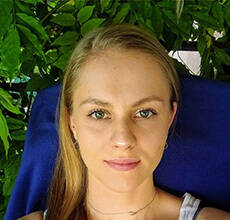Ta strona korzysta z ciasteczek, aby zapewnić Ci najlepszą możliwą obsługę. Informacje o ciasteczkach są przechowywane w przeglądarce i wykonują funkcje takie jak rozpoznawanie Cię po powrocie na naszą stronę internetową i pomaganie naszemu zespołowi w zrozumieniu, które sekcje witryny są dla Ciebie najbardziej interesujące i przydatne.
Genitive case in Polish –
rules, examples, exceptions
20 Gru | 2023
The Polish language is rich in many grammatical issues that can be quite surprising... One of them is the genitive case. In this article, we will take a closer look at this case, its usage rules, examples, and common mistakes made in its application.

What is the genitive case?
The genitive case is the second declension case, answering the questions: kogo? czego?. It is used to describe ownership or belonging and to indicate a category. It usually follows prepositions but can also occur after certain verbs, adjectives, and nouns. Besides the nominative case, it is the most frequently occurring case in the Polish language.
Genitive case in the „nie ma” construction
Right from the beginning of learning, it is worth remembering the use of the genitive case in the construction with „nie ma” (there is not). This information will be very helpful in further learning of the Polish language. In some situations, the genitive case can also, in some instances, replace the accusative case. This happens when the verb is in the negative form, e.g., „Nie zrobił zadania” (He didn’t do the homework), „Nie wypił herbaty” (He didn’t drink tea).
Difficulties with endings in the singular masculine gender
Learners of the Polish language often struggle with these endings. They are unsure whether to end a given word with -a or -u. Let’s try to clarify!
- Masculine nouns ending in the letter -a in the nominative case, such as „kierowca” (driver), „kolega” (colleague), „tata” (dad), in the genitive case have endings -y or -i (kierowcy, kolegi, taty).
- The genitive case with the ending -a is found among names:
People or professions: „pisarz – pisarza, grabarz – grabarza, tancerz – tancerza,
Units of measurement: kilogram – kilograma, kilometr – kilometra, tysiąc – tysiąca,
Dishes and cutlery: talerz – talerza, kubek – kubka, widelec – widelca,
Months: marzec – marca, maj – maja, czerwiec – czerwca
Brand names, fruits, etc.: arbuz – arbuza, maluch – malucha, granat – granata.
- In the singular masculine gender, the genitive case with the ending -u is used in:
Collective and abstract nouns: humor – humoru, wywiad – wywiadu, wypadek – wypadku,
Material nouns: piasek – piasku, diament – diamentu, długopis – długopisu.
- The genitive case of a singular neuter noun has the ending -a, e.g., okno – okna, krzesło – krzesła, ciastko – ciastka.
- In the singular feminine gender, the genitive case has the ending -i or -y, e.g., panna – panny, smycz – smyczy, szminka – szminki.
Verbs with a noun in the genitive case
In Polish, there is also a substantial group of verbs that require a noun in the genitive case, such as:
używamy (czego?) piły,
słuchamy (czego?) muzyki,
pilnujemy (kogo?) dziecka,
unikamy (czego?) kłótni,
dolewamy (czego?) mleka
brakuje mi (kogo czego?) pięciu złotych
przestrzegam (kogo? czego?) prawa
ustąpić (kogo? czego?) miejsca
szukać (kogo? czego?) książki itp.
The above verbs are characterized by the fact that they do not adhere to clearly defined rules. Therefore, one must rely on one’s memory once again.
* * *
Although the genitive case may seem difficult to learn at first, with time, one can master it to perfection! If self-study of the Polish language seems too complicated, it’s worthwhile to choose the right teacher and language school. Experienced teachers and a friendly atmosphere can work wonders during the learning process of this beautiful yet demanding language! Remember that Varia offers both in-person and online Polish language courses, and its 20 years of experience and student successes speak for themselves. If you also want to become a master of the Polish language, you are warmly invited to courses at Varia!
Aneta Kawa

Online Courses

Course Online
Semester Polish Course Online
- 52 lessons - 2 x 90 min weekly
- 2 x90 min evening classes
- All language levels A1 – C2
Courses at School

Course at School
Semester Polish Language Course
- 52 lessons - 2 x 90 min weekly
- Morning and evening classes
- All language levels A1 – C2
Do You Have Questions?

Justyna Kotlarczyk
Varia Polish Language Center



